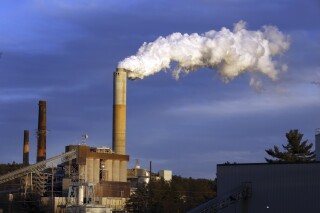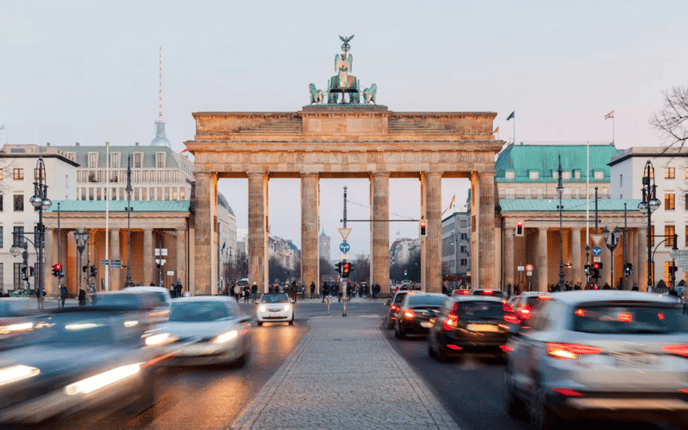
European Court of Human Rights to rule on climate cases
What's going on in the world of ESG, CSRD, SDGs...
1. EUROPEAN COURT OF HUMAN RIGHT TO RULE ON CLIMATE CASES
This is going to be a big week. Last year six young people, aged 11 to 24, took a climate change case against 31 European states including Germany, Ireland, and Spain. The case was heard by 22 judges. The judgment, due Tuesday, could mean that these 31 countries will have to increase climate actions to reduce carbon emissions. Big deal.
The applicants argued that the states failed to comply with their positive obligations under Article 2 (right to life) and Article 8 (right to respect for private and family life) of the European Convention on Human Rights.
Two other climate related judgments are also due Tuesday: the Association of Senior Women for Climate Protection vs Switzerland and French MEP Damien Carême vs France. Big week.
Reference: https://tinyurl.com/559n5vyk
2. SEC PAUSE CLIMATE DISCLOSURE RULE DUE TO LEGAL SETBACKS
It is really a crying shame that one of the world’s most powerful countries is so polarised that its business ‘leaders’ cannot look-up from their Income Statements and Balance Sheets to see the damage they are doing to the environment and society.
The SEC’s Disclosure Rule – requiring companies to disclose any risks climate change poses to their business – is currently suspended. Legal challenges, largely from Republican states, argue that the SEC “has no business slapping companies with extremist climate mandates.” Yes, seriously.
This will embolden the anti-ESG lobby. But in the end American companies will be less competitive, as EU drives forward with CSRD, China pushes Double Materiality, and most other major economies act responsibly.
3. BUSINESS LOBBY SUES TO STOP GAS TRUCK LAW IN CALIFORNIA
Following on from the last story, this is really a case of, “but wait, there’s more …”
A business lobby has sued California over plans to phase out fossil fuel trucks. The suit alleges that, without a waiver from the EPA, CA violated the Clean Air Act with a rule more stringent than federally mandated.
“The ability to move people and products reliably and affordably is foundational to free enterprise. The attempt … to ban liquid fuels and internal combustion engines is a major threat to the American way of life.”
The plans were for short-haul trucks to be zero-emission by 2035 and half of heavy-duty vehicle purchases by state and local governments to be zero-emission this year.
A long road! We need to stay the course.
Reference: https://thehill.com/newsletters/4577386-business-lobby-sues-over-california-truck-rule/
4. SHELL APPEALS COURT RULING FORCING IT TO SLASH EMISSIONS
This week, Shell will try to convince Dutch courts to repeal a historic climate ruling that ordered them to slash GHG emissions.
In 2021, the Hague ordered Shell to cut its emissions (by 45% by 2030) to align its business plans with Paris Agreement goals. The ruling included Shell’s own emissions, and Scope 3 emissions – like those from people driving with Shell petrol in their cars.
Shell claims the ruling forces it to shrink its business and shift customers to other fuel suppliers. Shell says it agrees that the world needs climate action but … Last month, the company weakened its climate targets.
Shell’s argument is: If we don’t pollute, someone else will – it’s unfair to stop us!
More shill than Shell.
Reference: https://tinyurl.com/2p3rjpxx
5. SOUTH EAST ASIA IS CURRENTLY SUFFERING CRIPPLING HEATWAVE
Temperatures all over South East Asia are reaching unprecedented levels this week. In Bangkok it is 43°C, Brunei 47°C, Kuala Lumpur 44°C and Phnom Penh 44°C.
Thousands of schools in the Philippines have stopped in-person classes due to unbearable heat. In Indonesia, prolonged dry weather has caused rice prices to soar. In Thailand’s waters, temp are so high that scientists fear coral could be destroyed.
Climate change is not coming. It is here. Spare a thought in particular for the many in South East Asia who are observing Ramadan. Fasting and not being able to drink water during the day will inevitably cause dehydration and heatstroke.
This is not a drill. There are few places in the world who can handle this level of heat.
Reference: https://tinyurl.com/4vkj2ddn
6. GERMANY: PERMANENT CLOSURE OF 15 COAL-FIRED POWER PLANTS
As many as 15 coal-fired power plants were permanently shut down across Germany over the Easter weekend in order to help meet the country's climate targets.
Germany’s Minister for Climate Action, said the 15 power plants were "neither necessary nor economical" to keep running as the country scales up renewables capacity and energy efficiency measures.
Germany pledged to phase out all coal-fired power plants by 2030 in order to meet its climate goals. The closure of these 15 plants was delayed because of energy concerns spurred by Russia's invasion of Ukraine.
"Several coal-fired power plants that were still on the grid as a precautionary measure … are now superfluous and can be taken off the grid for good."
Reference: https://tinyurl.com/r6as25yh
7. UK AND DUTCH WASTE TEXTILES SORTING IN DANGER OF COLLAPSE
It seems we just can’t resist buying new clothes – but what happens to the tonnes of textiles we throw away every year in Europe? A lot goes to developing countries, such as Ghana. But now even that is at risk.
Second hand clothing in the Netherlands could soon be sent for incineration, rather than being reused or recycled. "The textile sorting industry in the Netherlands is on the verge of collapse."
In the UK, the Textile Recycling Association (TRA) highlighted the "immense financial strain" faced by the industry, warning that the sector faced "imminent collapse" due to global market challenges.
In Europe we produce a staggering 12.6m tonnes of textile waste per year. We just have to stop buying stuff.
Reference: https://tinyurl.com/8yt2mnrm
8. NEW ENGLAND TO SHUT DOWN ITS LAST COAL PLANTS
The final coal-fired power plants in New England are slated to shutter in the coming years, making it the second region to phase out the energy source that powered the U.S. economy for decades.
New Hampshire-based power provider Granite Shore Power said it has agreed with federal officials to shutter Schiller Station in 2025 and Merrimack Station by mid-2028. "Everybody in our region is finally going to be breathing cleaner air, I think the market has finally caught up to the reality.”
Many parties are rushing to take credit. Mike Bloomberg is writing in The Boston Globe about ‘his’ victories. Environmentalists say they have “successfully SHUT DOWN New England’s last remaining coal plant.”
I don’t really care who did it. It’s done.
Reference: https://www.yahoo.com/news/englands-last-coal-plants-set-080009695.html
9. UNPRECEDENTED WATER CONSUMPTION LEVELS ACROSS THE GLOBE
The World Meteorological Organization reported that over 2.68 billion people, more than a third of the global population, face water scarcity for at least one month each year, jeopardizing not just individual well-being but our collective future.
Annually, we draw 4,000 km³ of water, 8X what it was a century ago, for use in our homes, industries, and agriculture. This escalating demand, driven by population growth and higher living standards, has led to a critical "water gap" in many regions.
The depletion of shallow aquifers—and the potential need to exploit deep, non-renewable ones—poses a threat not only to human health and prosperity but also to the very ecosystems and wildlife we coexist with.
We cannot survive without water.
Reference: https://worldwatermap.nationalgeographic.org/
10. RECYCLING EFFORTS FAIL TO KEEP UP WITH E-WASTE BOOM
A record 62MT of e-waste was produced in 2022, – 82% up since 2010, because of higher rates of consumption and shorter product lifecycles.
The value of the materials embedded in the e-waste exceeds $91bn. But most of that value is lost due to low recycling. 22.3% of the e-waste generated in 2022 was recycled, up from 17.4% in 2019, but e-waste is growing 5X faster than recycling capacity.
High-income nations are exporting e-waste to lower-income countries. Almost 10% of e-waste generated in 2022 was shipped across borders, with two thirds going from wealthier nations to less wealthy ones.
Less consumption, and more (EPR) Extended Producer Responsibility is needed.
Reference: https://www.edie.net/un-increased-recycling-efforts-failing-to-keep-pace-with-boom-in-e-waste/
11. GLOBAL RAINFOREST LOSS CONTINUES AT ALARMING RATE
An area nearly the size of Switzerland was cleared from previously undisturbed rainforests last year, totalling 37,000 sq. km.
While Brazil and Colombia recorded large drops in forest loss of 36% and 49% respectively, under the policies of presidents Luiz Inácio Lula da Silva and Gustavo Petro, those falls were offset by big increases in Bolivia, Laos, Nicaragua and other countries.
Canada also experienced a record-breaking loss of forest due to fire, losing more than 8m hectares (20m acres).
“The world took two steps forward, two back when it comes to this year’s forest loss.”
However, it takes a long time to step forward while going back happens almost instantly.
Reference: https://tinyurl.com/zyffmptr
12. JUST 57 COMPANIES LINKED TO 80% OF GHG EMISSIONS SINCE 2016
A mere 57 oil, gas, coal and cement producers are linked to 80% of the world’s global fossil CO2 emissions since the 2016 Paris climate agreement. These nations and corporations are the leading drivers of the climate crisis.
Although governments pledged in Paris to cut GHGs, the analysis reveals that most mega-producers increased their output of fossil fuels and related emissions since then.
The following are the 10 companies who have been responsible for most emissions since Paris, with each individually generating more that 1% of the world’s total emissions, each!
1. Saudi Aramco, 2. Gazprom, 3. Coal India, 4. NationalIranian Oil Co., 5. Rosneft, 6. CNPC, 7. Abu DhabiNational Oil Co., 8. ExxonMobil, 9. Iraq National Oil Co., and 10. Shell.
Reference: https://carbonmajors.org/briefing/The-Carbon-Majors-Database-26913


